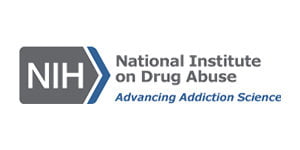
Office of Research Training, Diversity, and Disparities (ORTDD)
The Office of Research Training, Diversity, and Disparities (ORTDD) offers a wide range of programs, workshops, and funding mechanisms to support the development of substance use and addiction research scientists throughout the career pipeline. The ORTDD is committed to providing training opportunities to ensure a cutting-edge diverse research workforce that will advance the knowledge base needed to address urgent public health substance use and addiction problems.
The Office of Research Training and Career Development (ORT) provides research grants to promising scientists to meet the Nation’s need for drug abuse and addiction research. NIDA’s portfolio includes research in basic, clinical, and translational sciences. Read more about the NIDA ORT career development fellowships and grants.
NIDA offers a strategic set of funding mechanisms to support the development of research scientists through multiple stages of their careers. These awards are designed to ensure that scientists of the very highest caliber are available to meet the Nation’s need for substance use and addiction research. NIDA’s portfolio includes research in basic, clinical, and translational sciences. This includes genetics, epigenetics, molecular biology, neuroimaging, cognitive and social neuroscience, pharmacological and behavioral therapies, prevention, epidemiology, health services, health disparities, HIV/AIDS and other related domains. NIDA also promotes opportunities for quantitative scientists from fields such as mathematics, bioengineering, and physics to apply their knowledge to the study of substance use and addiction.
The Office of Diversity and Health Disparities (ODHD) offers programs to help undergraduate and graduate students, postdoctoral fellows, and early-stage investigators from underrepresented backgrounds launch their independent research careers. NIDA aims to enhance the representation of these scientists in the biomedical research workforce through outreach, education, and other research training initiatives. Read more information about NIDA ODHD programs and initiatives.
To enhance the pool of underrepresented populations in the sciences, the National Institute on Drug Abuse established the Office of Diversity and Health Disparities (ODHD) 20 years ago. The mission of the ODHD is to strengthen the NIDA extramural research portfolio through a more diverse and robust extramural research workforce, attracting and retaining talented individuals from all populations in order to fulfill the mission of NIDA. The ODHD’s goals are to:
Ensure that research addressing health disparities is adequately represented in NIDA’-supported substance abuse research.
Underrepresented researchers face a number of challenges that influence their success in obtaining independent support from NIDA, the NIH, and other federal funding agencies. Some of these challenges include limited/poor mentoring, lack of adequate knowledge of NIH funding opportunities and processes, limited access to novel high priority research projects and design, low publication records, and limited professional networking to successfully bridge to the next career level. Collectively, these factors impact NIDA's efforts to retain underrepresented investigators conducting substance abuse research and further develop the research infrastructure within this community. To that end, NIDA has implemented several key early stage outreach programs which play a vital role at recruiting, training, and retaining underrepresented researchers from underrepresented backgrounds in order to develop and support their research careers.
area
Wed, 06/24/2020 - 12:04